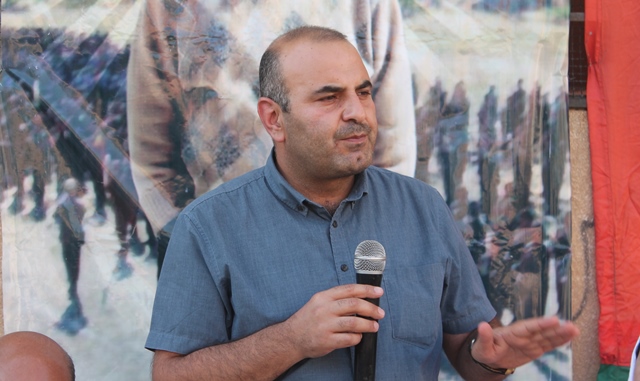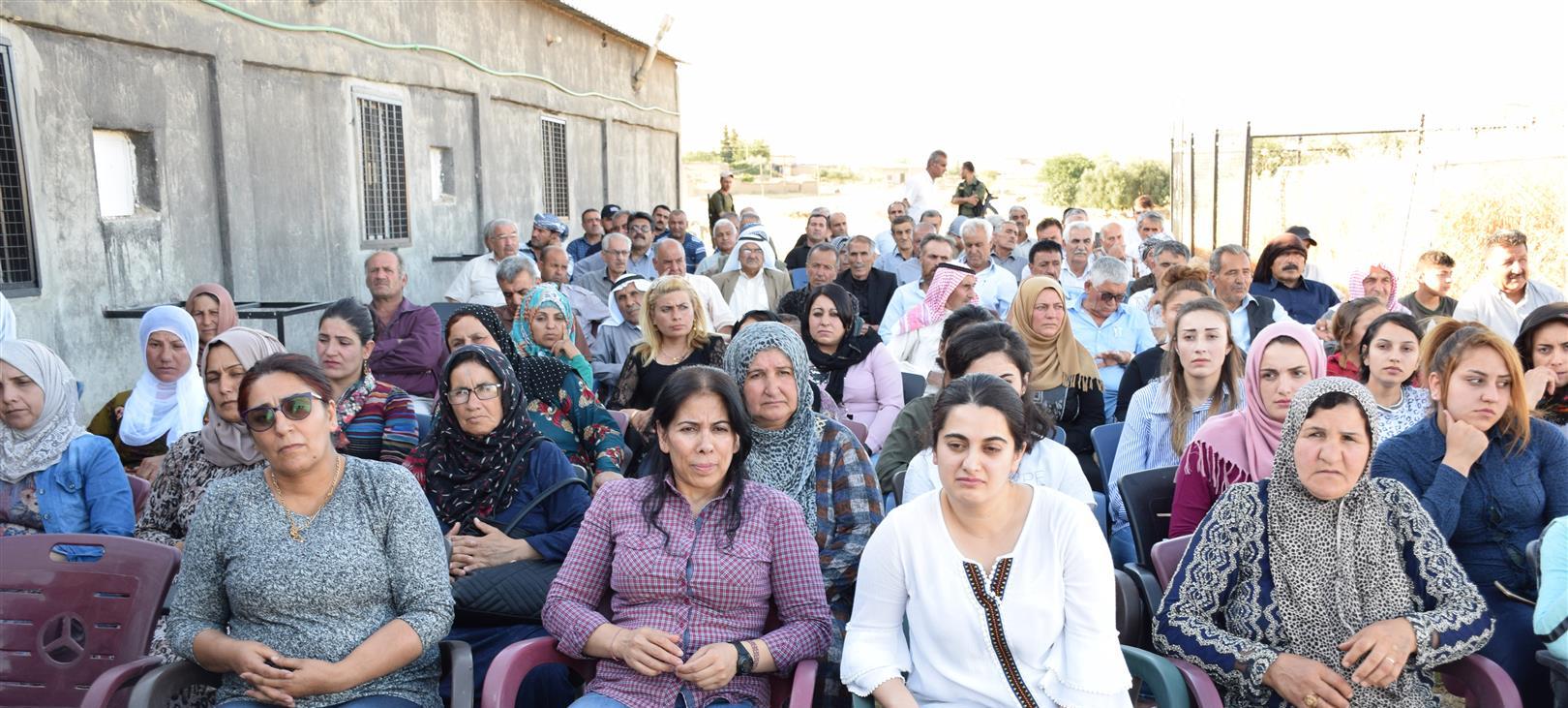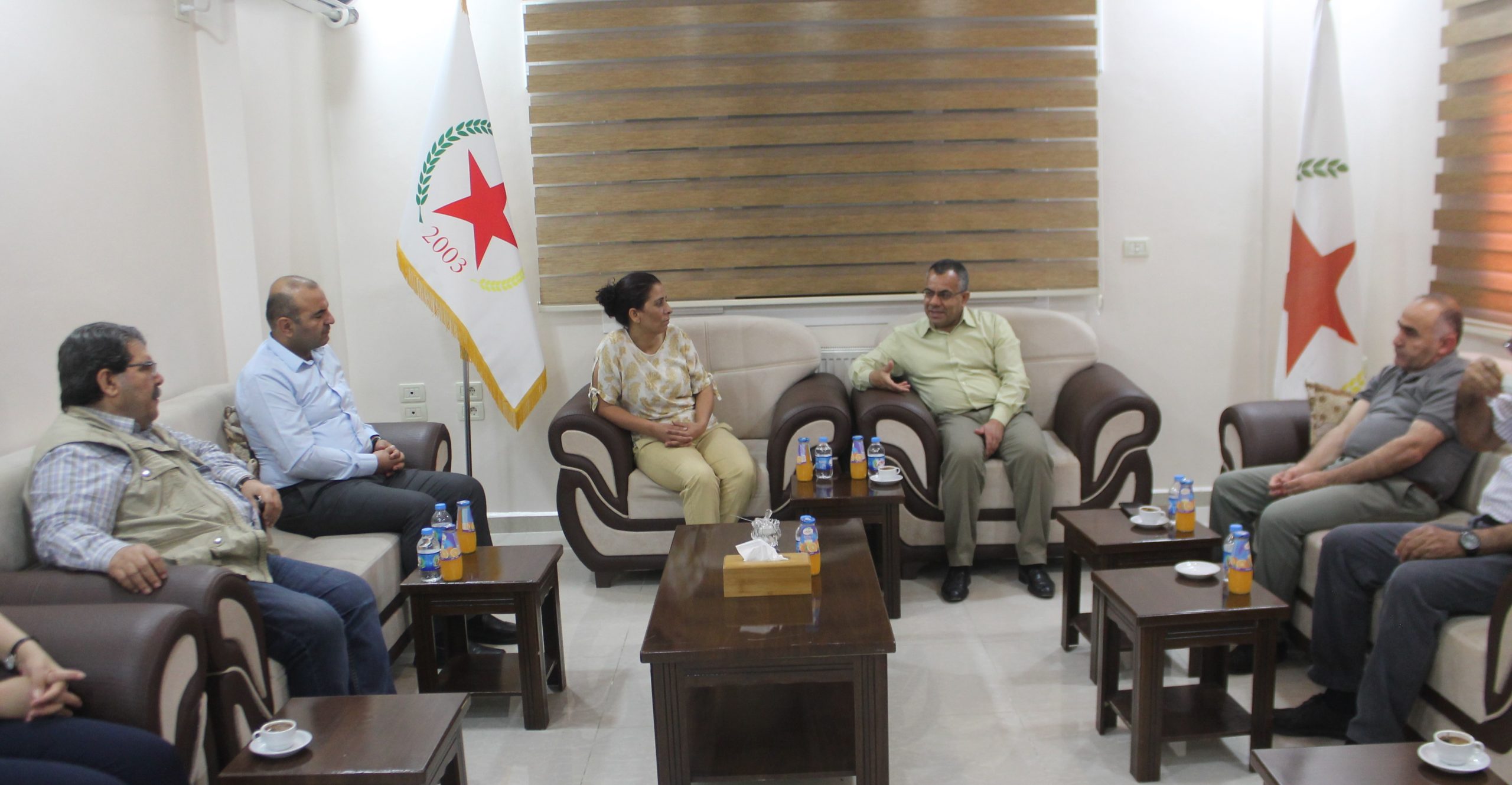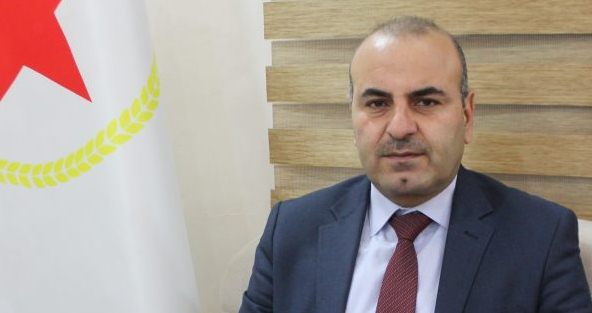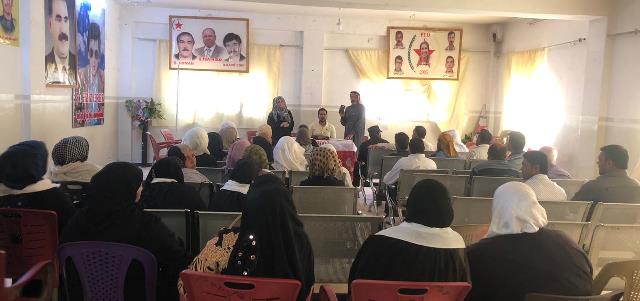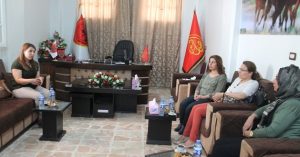Muslim: Second phase of the Kurdish-Kurdish dialogue to start soon
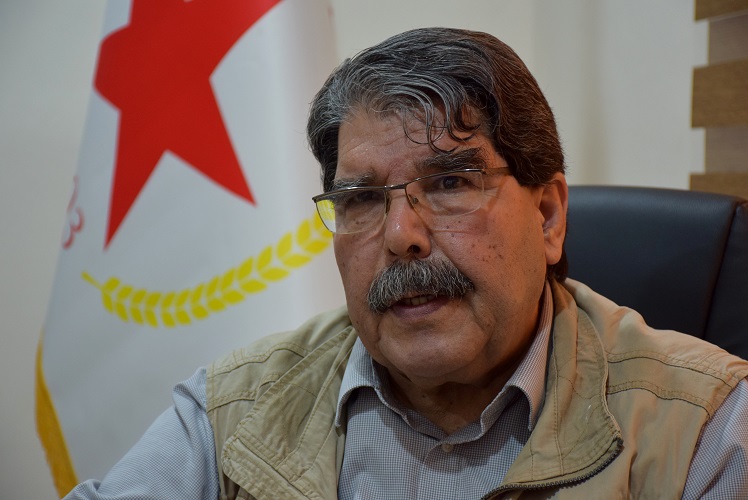
Saleh Muslim confirmed that the first phase of the Kurdish-Kurdish dialogue was positive, he pointed out that the Kurdish National Unity parties will join the second phase of discussions, which is expected to start soon, indicating that achieving the unity of the Kurdish rank will affect the situation in Syria, Kurdistan and the Middle East in general.
The General Command of the Syrian Democratic Forces declared that “the first step of the Kurdish-Kurdish dialogue went well, and we moved to the second phase.”
In order to know the details of the first phase, and the most prominent points of discussions in the second round of the talks, Hawar Agency held a dialogue with a member of the co-presidency of the Democratic Union Party,PYD, Saleh Muslim.
Muslim pointed out that the talks’ focus in the first phase was on common political issues and it was positive. The new forces and parties will join the second round, as he stressed that any agreement or reference in Rojava would serve as an example to be followed in other parts of Kurdistan.
The following is the text of the interview:
The Kurdish talks moved to the second phase. What happened in the first one?
The most important thing was that talks took place in Rojava. Without doubt there were divergence, different opinions and distrust between the parties, and some parties played a negative role and sought to divide the Kurds.
The first step of the talks was between the Democratic Union Party and the Kurdish National Council. We managed to agree on several common points and the talks proceeded positively.
It is noteworthy that there was no difference in political views on the main issues, such as relations with the Syrian regime, opposition forces, and external relations.
The focus of the discussions in the first phase focused on common political issues and was positive.
Where is the importance of the first phase, How has it been for all the involved parties?
Only the Democratic Union Party and the Kurdish National Council participated in the talks. Some observers were satisfied with expressing their views on the topics discussed, and those who joined the talks from both sides were positive.
- what will be the second phase about, why they were they in phases?
The first phase came at the request of the Kurdish National Council, which said that there are many issues that must be discussed with the Democratic Union Party, and they wanted to know our point of view.
Before that, several similar discussions were held, such as Hewler 1, 2 and Duhok 2014.
During the recent talks, it was suggested that the negotiations be conducted under the terms of 2014 Duhok agreement, but with some amendments according to the status quo now, because several changes occurred in the region, and the agreement was between the People’s Council of Western Kurdistan, the Kurdish National Council, and other parties.
That is, the talks will take place by the forces and parties that will discuss how to form a Kurdish reference, and an administration for the region, as was mentioned in Dohuk Agreement.
- Will other parties participate in the second phase of the talks?
Yes, they will. Representatives of the Kurdish National Unity 25 parties, will form part of the talks. They formed a committee to enter the talks and they are awaiting the response of the Kurdish National Council to participate. According to the some information, the Kurdish National Council has completed its preparations in this regard.
According to my expectations, the talks will start soon.
National unity in Rojava to solve the Kurdish cause?
The situation in Rojava is sensitive; national unity at the level of Kurdistan is an urgent requirement. Now we are trying to take steps in this regard within Rojava. The agreement between the political parties is not enough either, but it is a good step, in the future, a conference can be held to which all segments of society join, because the political parties are part of society.
The first step; It is the conclusion of an agreement between the political parties and the second is the formation of a national reference to which all segments of society join, and in the event that a political reference is formed, it can be expanded in the rest of Kurdistan.
- Does the agreement between two parties solve the Kurdish problem, or is there a need for a comprehensive Kurdish unity that includes all political and social classes? And why?
There is a fallacy; What is being talked about is not unity but rather an agreement between the political parties, i.e. agreement is reached on the common points between the Kurdish forces and parties such as work, resistance and political, and considering these points as basic lines for the Kurdish people, i.e. what do we want as the Kurdish people? do we want freedom or not, do we follow the resistance line or not, what system should be followed, what is the most appropriate system for the people of Rojava, how the relationship is between the Kurdish people and the rest of the components.
What I would like to say is that we are trying to encompass the Kurds, who is divided for hundreds of years and it affected directly the Kurdish people and the rest of the components, because the enemy used the Kurds to normalize their interests, what the Kurds to do with the war in Libya and Yemen.
Efforts to reunite the Kurds will also reduce Kurdish-Kurdish disputes.
- What is the impact of the Kurdish agreement on the future of the Kurds in Syria, and the Syrian crisis in general?
The administration in our regions led by the Kurds. İt was established to embrace everyone within it. So unity will have a direct impact on the situation in Syria; Everyone will count on the Kurds as it will have an impact in the rest of Kurdistan and the Middle East.
I believe that if the Kurds were able to conclude an agreement between them correctly and honestly, they would be the pioneers of the democratic project in the Middle East, and the Kurdish people have this ability politically, ideologically and intellectually.
- Is not the exisstence of the Kurdish National Council within the opposition coalition creates an obstacle to the national agreement?
This thing is related to the National Council. İn my opinion, in the event of a Kurdish agreement that can communicate with everyone, with the Turkish people and the rest of the peoples and powers in the region, but this communication should not be opposed to the Kurdish agreement. On the contrary, the Kurdish policy agreed upon by the powers Kurdish, protected and defended.
Hawar Agency

